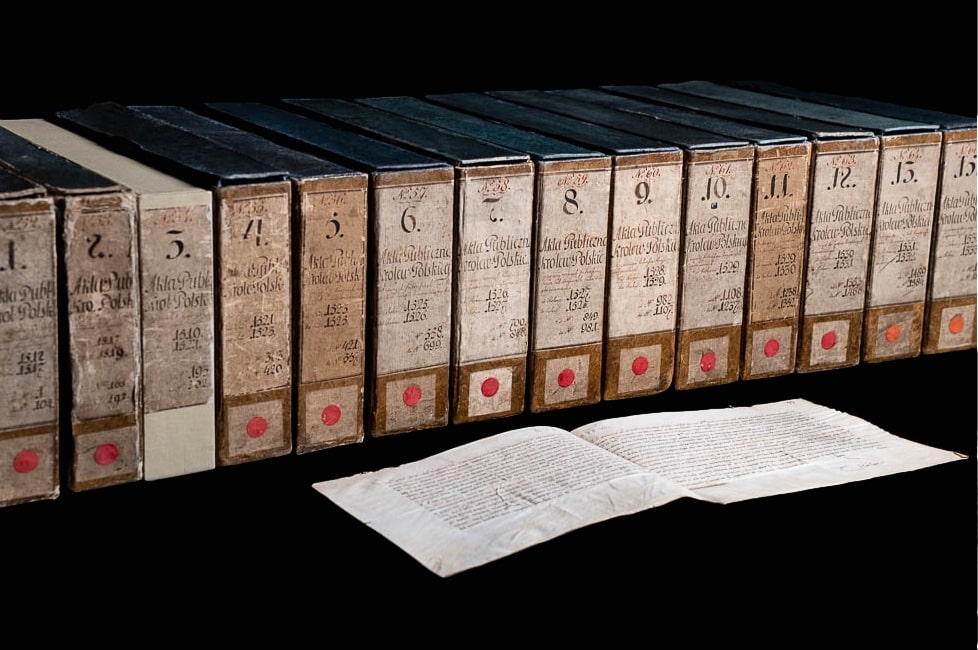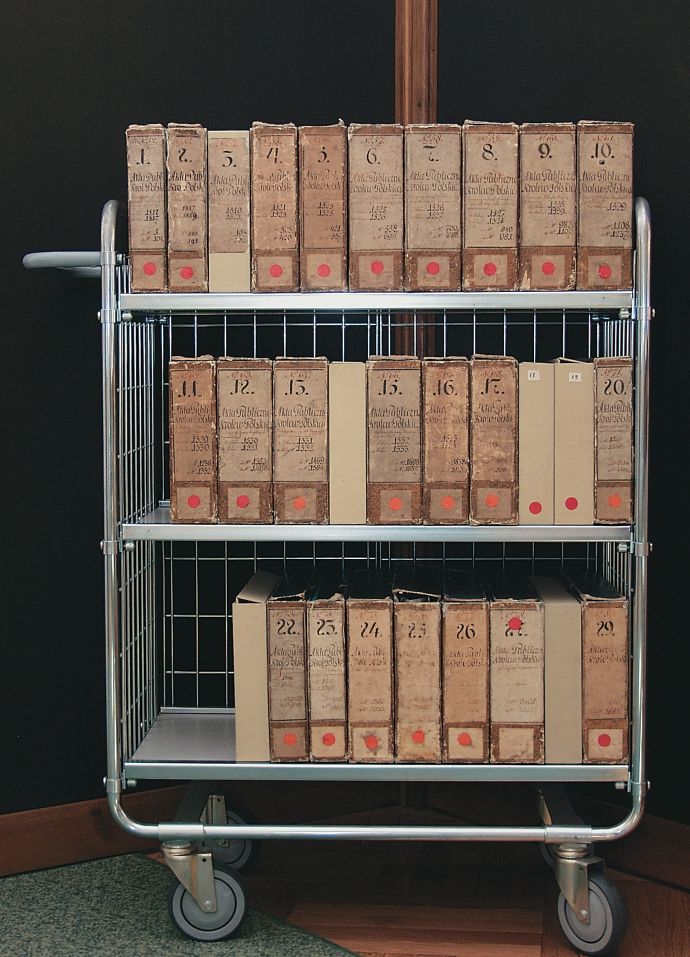Teki Górskiego entered onto the Polish National List of the UNESCO Memory of the World Register

The Teki Górskiego – literally "Górski's files" or "Górski's folders" – are one of the most valuable manuscript collections held by the National Library of Poland and one of the most valuable collections of correspondence in the world. This primary source on the history of Poland and its neighbouring countries in the first half of the sixteenth century has now been included on the Polish National List of the UNESCO Memory of the World Register.
The Teki Górskiego are a unique collection of materials relating to reign of Sigismund I (1507–1548), providing a behind-the-scenes view of foreign and domestic policy in Poland's "Golden Age". They consist mainly of the royal correspondence and that of top Polish dignitaries, chiefly the Vice-Chancellor Piotr Tomicki. They also contain extremely valuable original letters addressed to King Sigismund I of Poland, Queen Bona and Tomicki himself. Examples include the papal brief of Pope Leo X containing his congratulations on the wedding of Sigismund I to Bona in 1517, and a handwritten letter from the "Prince of the Humanists" Erasmus of Rotterdam to Piotr Tomicki, including Erasmus's seal. The collection also includes materials relating to the activities of the General Sejm and the local assemblies, as well as documents relating to domestic and international politics, such as Polish-Teutonic, Polish-Turkish and Polish-Moldavian treaties. The materials preserved in the Teki Górskiego are of value not only for Polish culture but also for the national heritage of neighbouring countries such as Hungary, Germany, Lithuania, Romania, Slovakia and the Czech Republic, and indeed the whole of the West, as in the case of Erasmus's letters. This is evidenced by the sustained interest of foreign researchers and publishers in manuscript copies and editions of the Teki Górskiego.
The materials were collected in the mid-sixteenth century by Stanisław Górski, Canon of Kraków and Płock. Later they were acquired by Jan Zamoyski, after which they appear in the Biblioteka Ordynacji Zamojskiej (Library of the Zamość Entail). Following World War II they were incorporated, together with the entire Zamoyski Family collection, in the collection of the National Library of Poland.
High-quality scans of the full Teki Górskiego are available via the digital library polona.pl.
A catalogue of the Górski Archive is available in Polish: Katalog rękopisów Biblioteki Narodowej. Seria 3, Zbiory Biblioteki Ordynacji Zamojskiej. T. 7, Teki Górskiego.
The Polish National List of the UNESCO Memory of the World Register contains invaluable written documents relating to key events in Polish history. The Memory of the World Programme was launched by UNESCO in 1992. Its aim is to consolidate the importance of the centuries-old documentary heritage of humanity. The Programme draws society's attention to the necessity of protecting documents of particular historical importance, which constitute a testimony to our culture and civilisation. Information about the objects honoured this year with inclusion on the Polish National List will be gradually released on the website pamiecpolski.archiwa.gov.pl. The full list will be published on June 9.
Previous years have seen the inclusion of exceptional objects from Polish archives, libraries and other Polish institutions in Poland and abroad. The following items from the collections of the National Library of Poland already feature on the Polish National List: the Gesta principum Polonorum of Gallus Anonymous, the Kazania świętokrzyskie (Holy Cross Sermons), the Rocznik świętokrzyski dawny (Old Annals of the Holy Cross), the manuscript of Stefan Żeromski's Przedwiośnie ("The Spring to Come"), the first edition of Józef Pawlikowski's pamphlet Czy Polacy wybić się mogą na niepodległość? ("Can Poles win their independence?") and a poster of the Regency Council dated November 11, 1918 announcing the handing over of military power in Poland to Józef Piłsudski. The separate UNESCO Memory of the World Register includes two further objects from the collection of the National Library of Poland: manuscript scores by Chopin and the Codex Suprasliensis.
